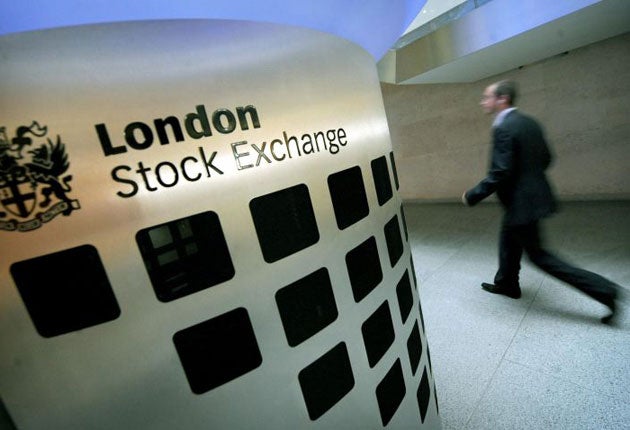FTSE 100 rises as attacks on Saudi facilities push oil prices higher
Oil prices spiked above $70 on Monday after Saudi Arabia confirmed drone attack on a petroleum storage tank at Ras Tanur

Your support helps us to tell the story
From reproductive rights to climate change to Big Tech, The Independent is on the ground when the story is developing. Whether it's investigating the financials of Elon Musk's pro-Trump PAC or producing our latest documentary, 'The A Word', which shines a light on the American women fighting for reproductive rights, we know how important it is to parse out the facts from the messaging.
At such a critical moment in US history, we need reporters on the ground. Your donation allows us to keep sending journalists to speak to both sides of the story.
The Independent is trusted by Americans across the entire political spectrum. And unlike many other quality news outlets, we choose not to lock Americans out of our reporting and analysis with paywalls. We believe quality journalism should be available to everyone, paid for by those who can afford it.
Your support makes all the difference.The FTSE 100 rose marginally on Monday as oil prices jumped following attacks on a Saudi oil facility.
BP and Shell, two of the largest components of the index of 100 leading shares, both saw share prices increase while mining stocks, including Rio Tinto, Anglo American and BHP, gained between 0.9 per cent and 1.2 per cent.
The FTSE rose 0.5 per cent before erasing its gains to trade at 6,633.31 by late morning. Oil prices spiked above $70 on Monday after Saudi Arabia confirmed it had been targeted by a drone attack from the sea on a petroleum storage tank at Ras Tanur, one of the world’s largest oil shipping ports.
Investors will be closely watching the progress on the vaccine rollout which underpins the UK's plans to re-open the economy over the next three months. The reopening of England’s schools to all pupils on Monday marked one of the first steps back towards normality.
Andrew Bailey, governor of the Bank of England, warned in a speech on Monday that growth expectations for the UK had remained low in recent years.
“It is apparent that the average growth rate has fallen from around 2.5 per cent in the years before the global financial crisis, to around 1.5 per cent in the period immediately prior to the Covid pandemic,” Mr Bailey said.
“Another way of representing this, is to note that the level of activity in the UK following the global financial crisis is significantly below its level at the equivalent stage following the 1930s Depression.”
The US Senate's passage of a $1.9 trillion stimulus bill is expected to allow for faster global economic growth.
There was also more upbeat economic news from China where exports surged 155 per cent in February compared with a year earlier when much of the economy shut down to fight the coronavirus.
"With the Senate's passage, we expect growth momentum to accelerate and forecast global GDP growth will surge to a 7.5 per cent annualised rate in the middle quarters of the year," said JPMorgan economists in a note.
"Every $1 trillion of fiscal stimulus adds around $4-$5 to [earnings per share], implying 6-7 per cent upside for the remainder of the year."
Analysts also expect inflation to rise as economic activity picks up and oil prices rise.
“The FTSE 100 made a solid start to the week underpinned by renewed gains for oil off the back of attacks on facilities in Saudi Arabia over the weekend,” said Russ Mould, investment director at AJ Bell.
“This lifted index heavyweights BP and Royal Dutch Shell as the black stuff traded above $70 per barrel for the first time since January 2020 when tensions between Iran and the US were rapidly escalating.
“The only problem is the rise in oil will only add to the key concern which is dogging markets – namely the risk of runaway inflation and a resulting increase in interest rates.

Join our commenting forum
Join thought-provoking conversations, follow other Independent readers and see their replies
0Comments